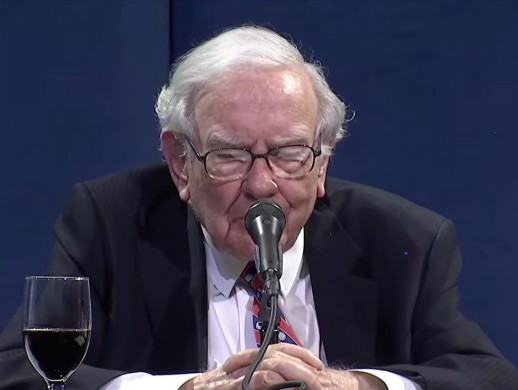Until 1982 Buffett took on personal responsibility for Berkshire’s insurance business strategy, senior appointments, and monitoring. As the business grew he realised the need to take more of a back seat, freeing time to concentrate on investments. He looked around for a talented manager to take over as head of all Berkshire’s insurance operations, and found such a talent in Mike Goldberg, a former McKinsey consultant.

Self-deprecatingly Buffett said in his 1982 letter that “planning, recruitment, and monitoring all have shown significant improvement since Mike replaced me in this role.”
The following year Buffett was very hard on himself “in aggregate, the companies we operate and whose underwriting results reflect the consequences of decisions that were my responsibility a few years ago, had absolutely terrible results. Fortunately, GEICO, whose policies I do not influence, simply shot the lights out. The inference you draw from this summary is the correct one. I made some serious mistakes a few years ago.”
Perhaps it wasn’t self-deprecation. The chickens of the late 1970s and early 1980s were coming home to roost in the mid-1980s. Those chickens were some poor underwriting decisions which went unrecognised for some time but had to be acknowledged eventually.
In 1983 for every $100 taken in premiums Berkshire recorded an expense of $121 for claims and operating costs. In other words, the “combined ratio” was 121 (combined ratio is total cost of underwriting (including operating costs) divided by total earning premiums).
Buffett said that it would “be nice” if the underwriting shortcomings could be placed at the doorstep of Mike Goldberg. But that insurance has a long lead time before the effects of decisions are seen, “so the roots of the 1983 results are operating and personnel decisions made two or more years back when I had direct managerial responsibility for the insurance group.” (1983 letter)
Insurers often have great difficulty estimating claims for a 12-month period. The lack of clarity and the dependence on judgement opens the door to over-optimism. The extent of many insurance claims, or even their existence, is not known for many years because there are four parts to insurance loss expenses in any one year:
1. Losses that occurred and were paid during the year;
2. Estimates for losses that occurred and were reported to the insurer during the year, but which have yet to be settled;
3. Estimates of ultimate dollar costs for losses that occurred during the year but of which the insurer is unaware; and
4. The net effect of revisions this year of similar estimates for (2) and (3) made in past years.
Revisions under 2 and 3 may occur many years down the line which adds to the cost line of that later year, distorting the profitability of underwriting then. Take an injury from a car accident. The true extent of the medical costs or time off work costs may not be known for some time. If say an unexpected additional $100,000 is paid out five years later then the amount is charged to underwriting profits in the year it is settled.
Even well-intentioned CEOs and their accountants, who are conscientiously aiming at conservative estimates, often make mistakes. In the mid-1980s Buffett had to admit to such, “At Berkshire, we have added what we thought were appropriate supplemental reserves but in recent years they have not been adequate.” (1983 letter)
In 1984, for example, of the overall $45.4m underwriting loss, $27.6m was a loss on 1984’s business, but $17.8m was a correction for the loss amount recorded for 1983.
Errors in this period were largely caused by under-estimating the tendency of juries and courts, influenced by publicity on high-profile cases, to continuously push up pay-outs for injuries in accidents and other events regardless “of the factual situation and the past precedents for establishment of liability” according to an annoyed Buffett.
Berkshire also erred in the reinsurance area. Much of this being down to client primary insurance firms making errors, “their mistakes have become our mistakes” wrote Buffett.
Buffett ruefully likened the painful experience of having to make surprisingly large payments on business he thought was finished years before to that of the man when travelling abroad received a phone call from his sister infor………………To read more subscribe to my premium newsletter Deep Value Shares – click here http://newsletters.advfn.com/deepvalueshares/subscribe-1















